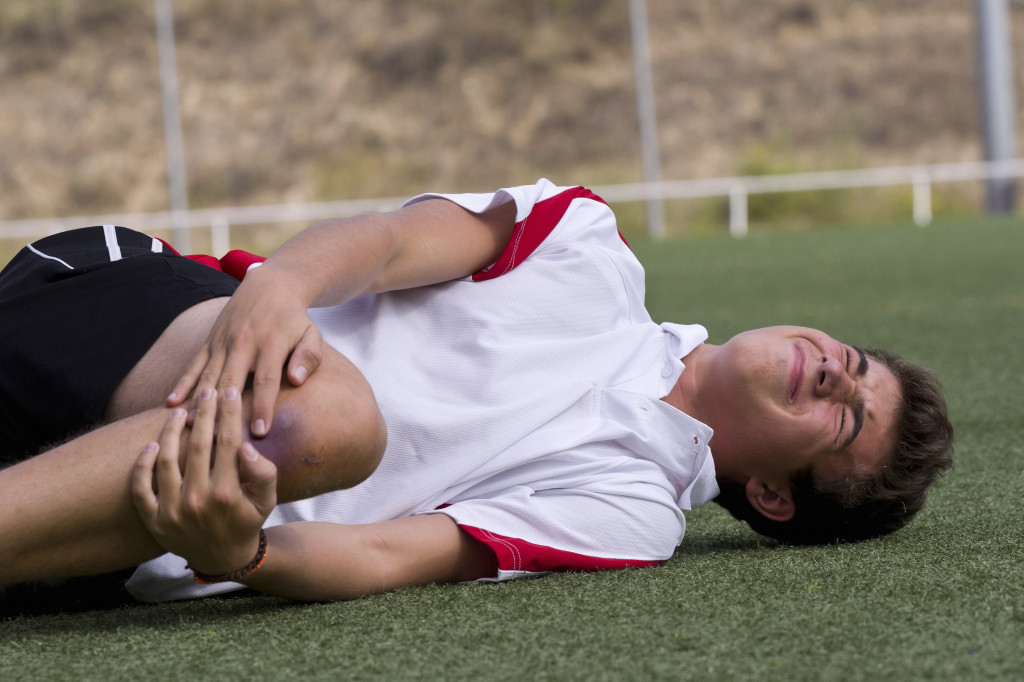- Seek medical attention and follow recommended treatments for a major sports injury.
- Consistently follow a personalized rehabilitation plan designed by a physical therapist.
- Develop a positive mindset, focus on achievable goals, celebrate victories, and be patient during recovery.
- Take preventive measures, such as wearing protective gear, to avoid re-injury.
- In some cases, address medication dependence with supportive treatment centers.
Injuries are an inevitable aspect of sports; regardless of how experienced, skilled, and careful you are, getting injured is always possible. Whether you have been sidelined by a minor sprain or a major injury, the road to recovery will undoubtedly be physically and mentally challenging.
However, with the right mindset, attitude, and guidance, you can recover and get back to the game you love. This post will share some tips for recovering from a major sports injury.

Seek Medical Attention
Your first step towards recovery after a major sports injury is to seek medical attention. This could include consulting with your doctor, physical therapist, orthopedist, or sports medicine specialist.
Different Treatments
Depending on the severity and nature of your injury, your healthcare provider may recommend varying forms of treatment. This could involve surgery, medication, rehabilitation, or a combination. Following the advice of your healthcare provider is crucial in achieving optimum recovery.
Physical Therapy
Physical therapy is often used for sports injuries as it helps improve range of motion, strength, and flexibility. It can also help reduce inflammation and pain. A physical therapist will assess your injury and create a personalized treatment plan to meet your specific needs.
Follow a Rehabilitation Plan
After receiving treatment, the next critical step in your recovery journey is to follow a rehabilitation plan. This program is designed to help you regain strength, mobility, and range of motion.
Consistency
Your rehabilitation plan may include exercises, stretching, and strengthening routines, which must be done consistently and with the supervision of your physical therapist or trainer. Sticking to your rehabilitation plan will help you recover faster, prevent re-injury, and improve your overall fitness.
Reduce Medication Dependence
If you want to wean away from your dependence on prescription medication, you should look for a reputable addiction treatment center. The center should offer a program that allows you to achieve sobriety to enhance your health and wellness.
Positive Mindset
Having a positive mindset is essential for recovery. This means believing in your ability to heal and staying committed to the process. It’s also important to focus on what you can do rather than what you can’t. For example, if you cannot run, find other activities that don’t cause pain or discomfort.
Stay Positive and Patient
Recovering from a significant sports injury can be a long and frustrating journey, and it’s easy to feel discouraged or demotivated at times. However, staying positive and being patient are essential.
Focus on Recovery
Celebrate your small victories, and don’t compare your progress to others. Focus on what you can control, such as eating healthy, getting adequate rest, and following your rehabilitation plan. It’s also vital to surround yourself with supportive friends and family who can provide encouragement and motivation.
Set Realistic Goals
Setting realistic and achievable goals can help you stay focused and motivated during your recovery journey. However, setting goals that align with your current abilities and progress is crucial.
Initial Goals
For instance, if you’ve undergone surgery, your initial goal may be to gradually reduce swelling and inflammation, regain your range of motion, and build strength. As you progress, you can set more ambitious goals that challenge you but are still manageable.
Future Goals
On the other hand, if you’ve been injured due to a sporting activity, your initial goal may be to reduce pain and swelling, improve mobility in the affected area, and build strength. From there, you can progress towards returning to the sport or activity that caused the injury.
s
Take Preventive Measures
Once you’ve recovered from your sports injury, taking preventive measures is vital to avoid re-injury. This could include wearing protective gear, warming up and cooling down before and after games or training, maintaining a healthy diet and weight, and avoiding overtraining or sudden increases in intensity.
Importance of Prevention
Remember, prevention is always better than cure. Taking proactive steps can reduce your risk of getting injured again.
Recovering from a significant sports injury can be a long and challenging journey. But with the right mindset, attitude, and guidance, you can get back to the game you love. Remember to seek medical attention, follow a rehabilitation plan, stay positive and patient, set realistic goals, and take preventive measures to avoid re-injury. And finally, be kind and patient with yourself as you embark on this recovery journey. With hard work, determination, and a bit of luck, you’ll be back on the field in no time.

